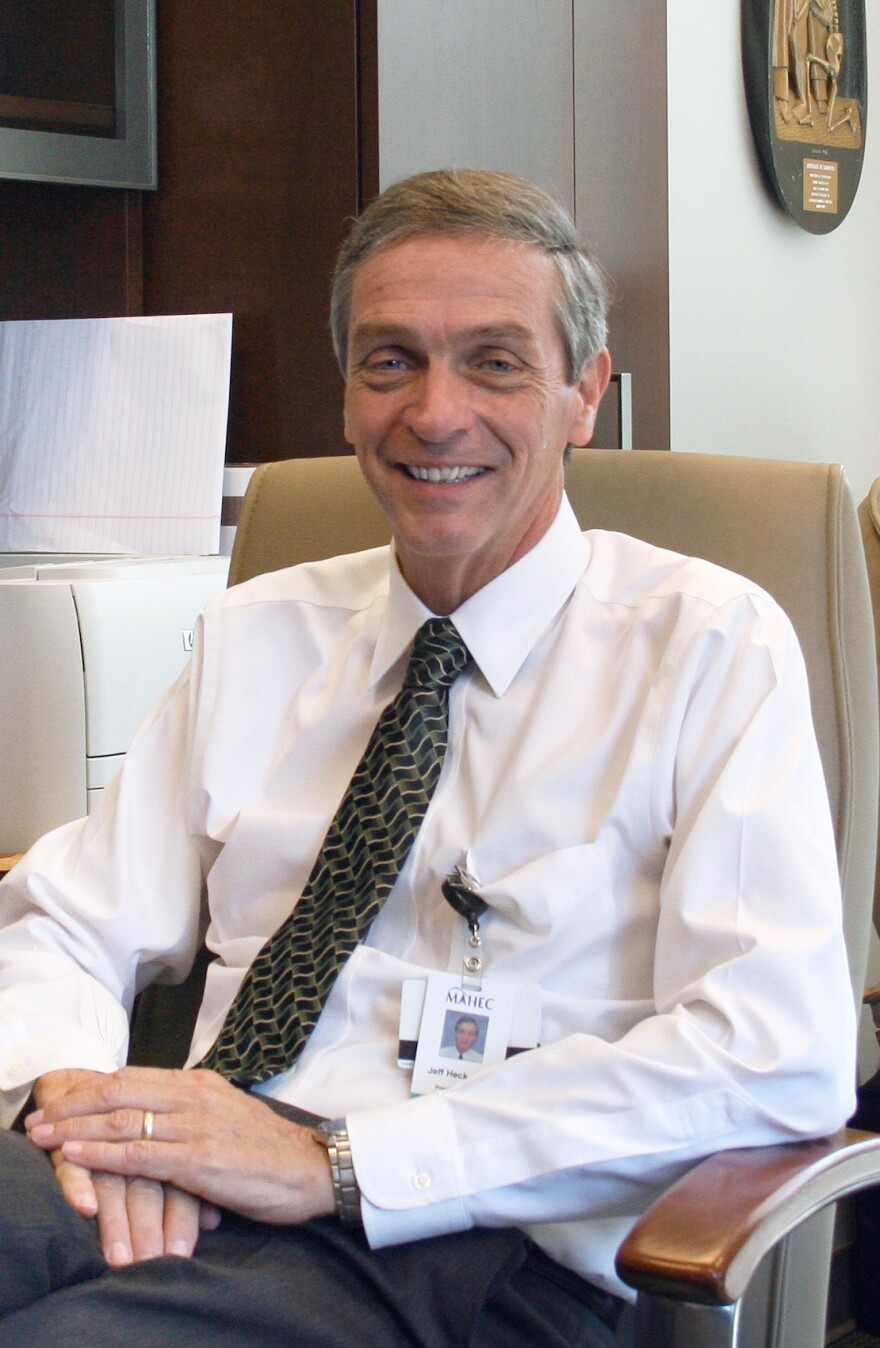Find the latest COVID-19 updates & info here Along with restaurants, hotels, and many small businesses – physician practices across Western North Carolina are feeling the financial crunch from the coronavirus. A MAHEC survey of 100 primary care practices finds many are being hit hard by both the shortage of supplies - and patients.
BPR’s Helen Chickering spoke with MAHEC CEO Dr. Jeff Heck last Friday (4/3) about the preliminary results of the survey. The survey was conducted by MAHEC furloughed medical students.
The survey is ongoing and you can find the latest results here.
Interview Excerpts:
The survey response that caught Dr. Heck's attention. “On our survey we have a hot button and the hot button is pushed for an urgent problem that the practices would like some help with - immediately. And unfortunately, a significant percentage of the hot button pushes have been, ‘We need some help with understanding what are the best small business loans and how do we talk to our employees about furloughing.’”
On how the WNC primary care impact compares to other parts of the state “Western North Carolina and Eastern North Carolina are two parts of the state where the majority of our payer mix, about 75% is Medicare, Medicaid, which pays lower than the commercial payers. So, the margins, the financial squeeze on primary care has always been higher. So yes, I would say that we are disproportionately affected compared to other parts of the state.”
On the challenge of getting the coronavirus outbreak under control and keeping medical practices afloat "So we, we have a paradoxical challenge and in fact, I would argue in many ways right now the economic challenge, that is the bigger one, than the pandemic challenge. Of course, the pandemic is the very thing that caused it. But, the unintended consequences of having patients being fearful about coming into their physician's offices - that is also adversely affecting the very workforce that's going to be needed to care for those people."
On his experience as a practicing physician during the coronavirus pandemic “This is what I signed up for when I became a physician 40 years ago. I can remember in 1982, I was working in a mission hospital just outside of Nairobi, Kenya and we were taking care of people with chronic wasting disease. We didn't know what that was. Well, it turned out to be the very beginning of the HIV epidemic that swept through the world shortly thereafter. But we just knew that this was some unknown disease. We knew that people were getting sick and dying, but none of us ever questioned whether we should go to work every day. It never crossed my mind that I should stay home and protect myself. I mean, this is what it means to be a physician. "
MAHEC Survey Highlights:

WNC Primary Care COVID Impact and Assessment Survey
Current Summary:
- 100 primary care practices included throughout the region.
- 18 practices with urgent needs that they want addressed.
- Approximately 64% have sufficient PPE for the next two weeks to evaluate respiratory patients. However, that number goes down to around 38% who will have sufficient PPE in 4 weeks, primarily due to shortages of masks and face shields.
- Approximately 40% of practices in the region have the capability of doing COVID testing at their practice location using current CDC standards.
- Over 90% of practices have protocols in place for suspected cases.
Observations
- A significant number of practices are already in distress, many with reduced hours and services.
- Themes for most urgent needs include PPE and financial viability with billing and loan opportunities.
- Most practices have actively converted to telehealth services, but uptake remains slow.
- Needs vary based on time, location and practice.
- Protocol development, training, and education desired.
MAHEC has engaged regional practices through our Practice Support Team and responded to many existing needs. Regional educational teleconferencesoccur daily to assist with telehealth support and COVID-19 updates
Survey Partners:
Buncombe County Health and Human Services
- North Carolina Biotechnology Center
- Parsec Financial
- The Cecil G. Sheps Center for Health Services Research
- Dogwood Health Trust
- UNC School of Medicine Asheville Campus
- NC AHEC
- NC Office of Rural Health
- North Carolina Network Consortium
- Mission Health Partners
- Western Carolina Medical Society
- NC Translational and Clinical Sciences (NC TraCS) Institute/ National Center for Advancing Translational Sciences (NCATS), Grant # UL1TR002489





